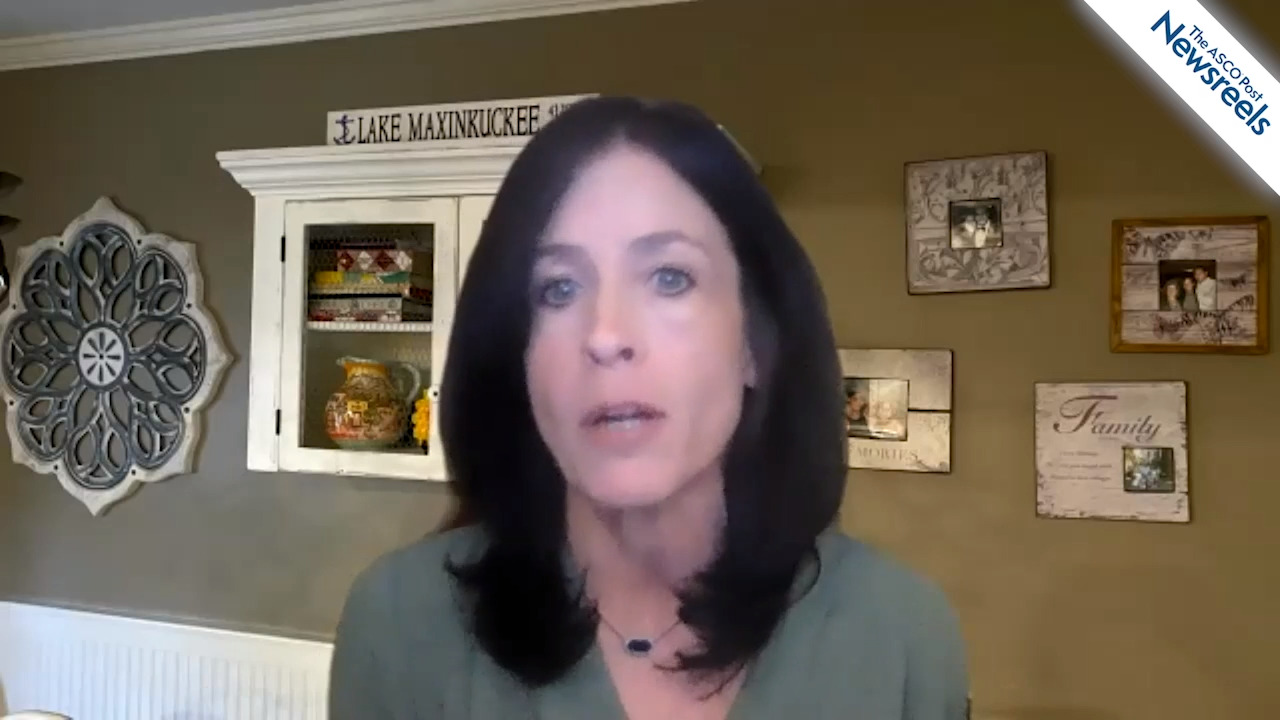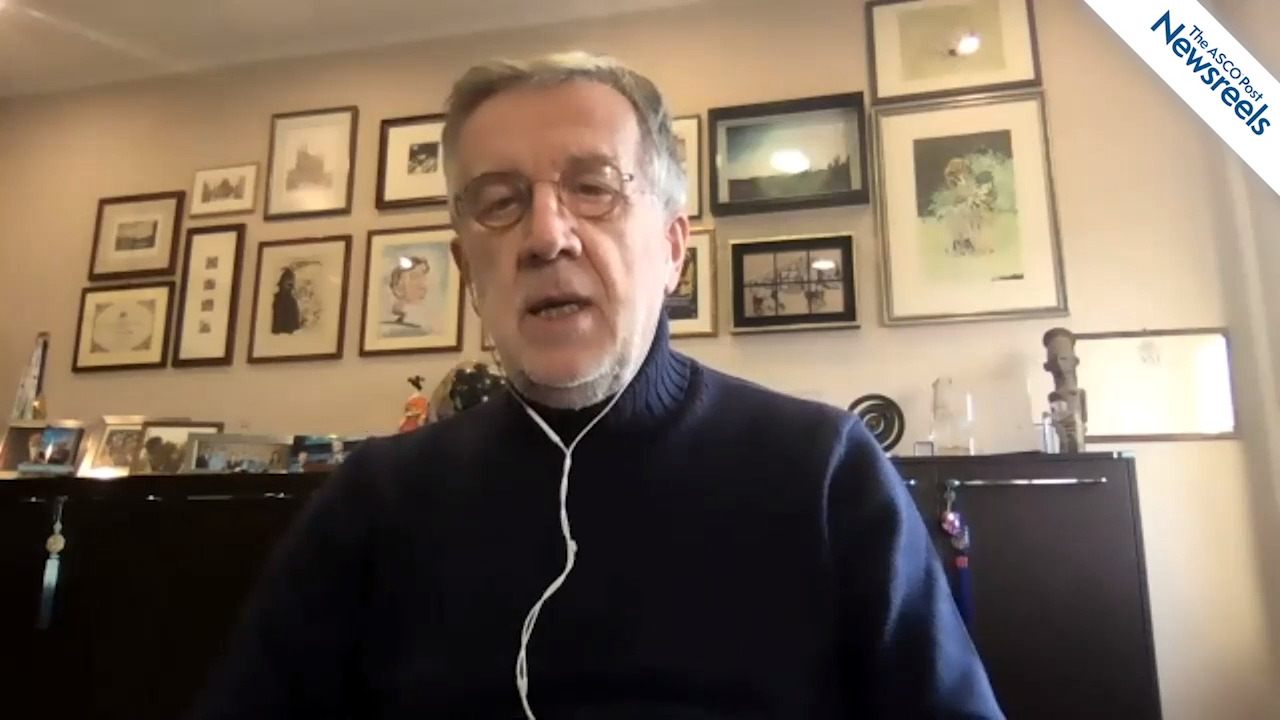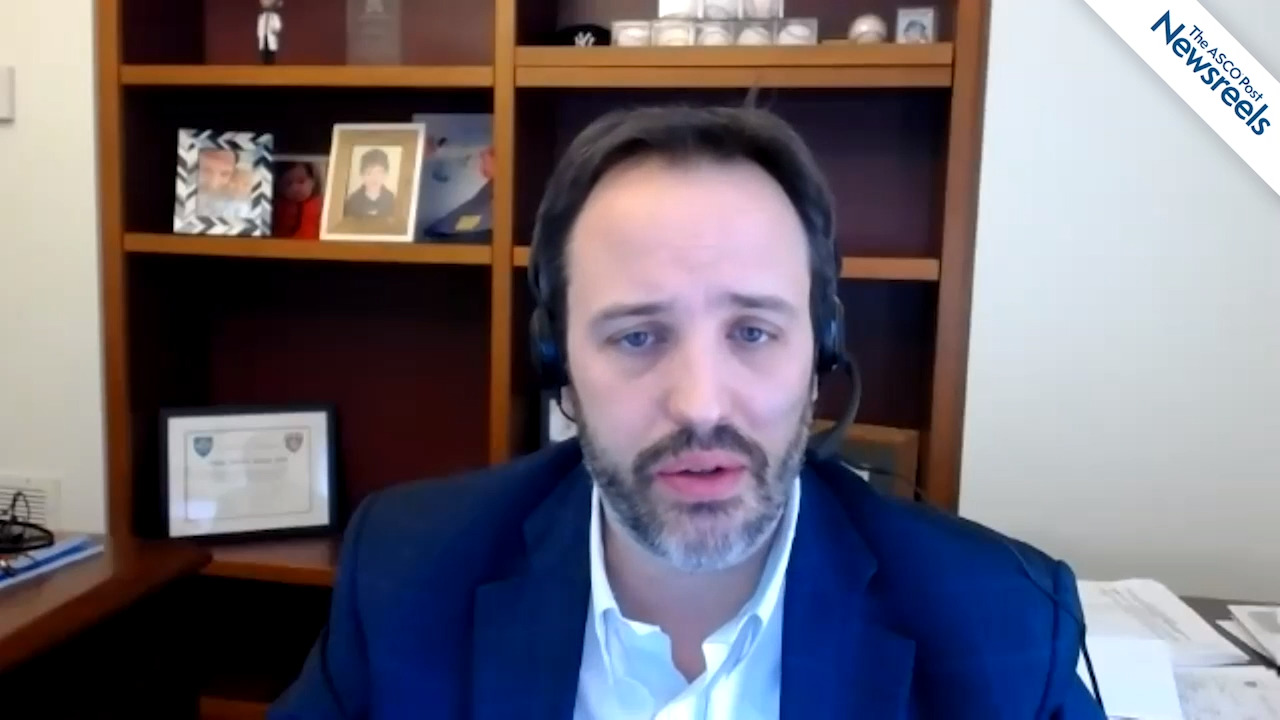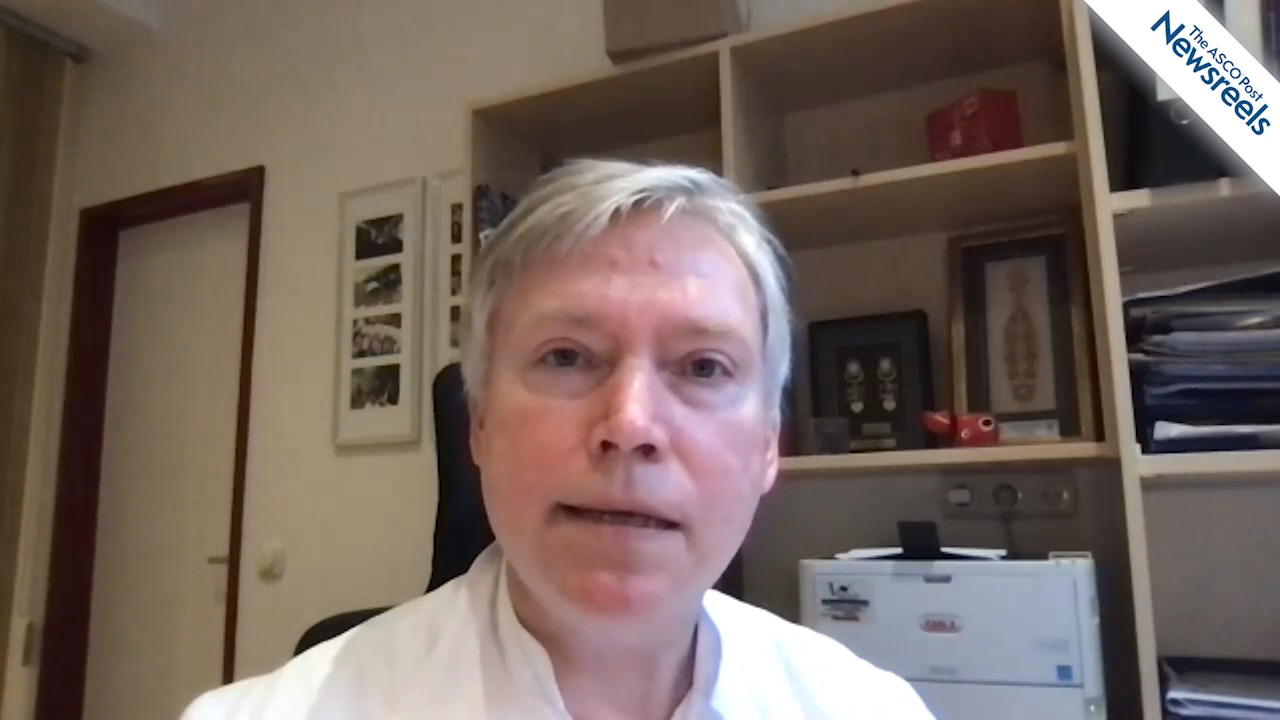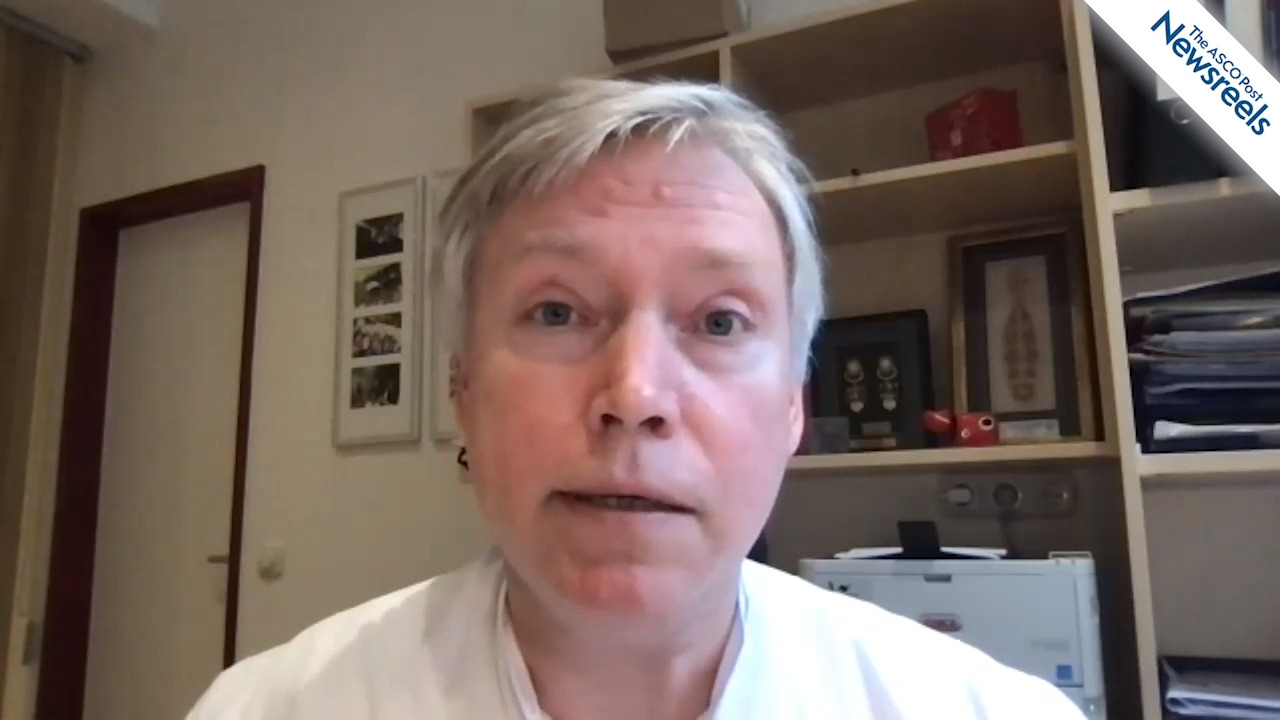Martin Reck, MD, PhD, on NSCLC: Pembrolizumab, Platinum Chemotherapy, and Radiotherapy in Advanced Disease
IASLC 2020 World Conference on Lung Cancer in Singapore
Martin Reck, MD, PhD, of the LungenClinic, discusses the results from KEYNOTE-799, which explored a new strategy to increase the intensity of treatment in patients with unresectable, locally advanced, stage III non–small cell lung cancer (Abstract OA02.03).
The ASCO Post Staff
Jill Feldman, a patient advocate and lung cancer survivor, discusses the current challenges and potential solutions to including more people of color and those in underserved communities in clinical trial research (Abstract PL04.06).
The ASCO Post Staff
Giorgio V. Scagliotti, MD, PhD, of the University of Torino, talks about why he believes that many more patients with lung cancer can be cured within the next 4 years, given decreases in mortality rates, widespread use of targeted treatments and immunotherapies, and earlier diagnoses as a result of systematic screening with low-dose CT (Abstract PL05.08).
The ASCO Post Staff
Justin F. Gainor, MD, of Massachusetts General Hospital, discusses two key phase II studies on non–small cell lung cancer: nivolumab vs nivolumab plus ipilimumab in EGFR-mutant disease and the oral selective AXL inhibitor bemcentinib with pembrolizumab in advanced disease (Abstracts OA01.06 and OA01.07).
The ASCO Post Staff
Martin Reck, MD, PhD, of LungenClinic, discusses results from the IMpower133 study of carboplatin plus etoposide with or without atezolizumab in patients with untreated extensive-stage small cell lung cancer (Abstract OA11.06).
The ASCO Post Staff
Martin Reck, MD, PhD, of the LungenClinic, discusses findings of the KEYNOTE-598 study, which showed that pembrolizumab plus ipilimumab was more toxic and offered no more benefit in terms of efficacy than pembrolizumab plus placebo in first-line therapy for patients with metastatic high PD-L1–expressing non–small cell lung cancer (Abstract PS01.09).
